What Vegan Travelers Must Know Before Visiting Uzbekistan
Uzbekistan is filled with great culture, beauty, and history and even has cities as old as Rome and Athens, yet it is an area of the world entirely unknown to tourists.
Visitors who do venture a visit are not disappointed. Often referred to as “The Pearl of the Muslim World,” Uzbekistan is home to five UNESCO World Heritage sites and has a fascinating history given its location on the Silk Road. One of these sites is the city of Samarkand, named the 2023 World Tourism Capital by the United Nations World Tourism Organization.
Despite a wealth of culture, Uzbekistan can be a particularly tough place for vegan and vegetarian travelers to visit. The country has a love affair with meat, and veganism is not well understood. That being said, vegans can have a fantastic time visiting Uzbekistan, as long as they plan ahead and know what to expect (which this guide will provide). I got married here in 2022, and both my vegan sister and best man enjoyed their visit so much they plan to return!
Whether Uzbekistan has been on your travel bucket list or you’re heading there soon, you’ll want to bookmark this guide! I’ll help you find the best vegan eats, while helping to prepare you for what to expect at local restaurants, and I’ve even included an interview with a local vegan food guide to provide insights into the veggie scene.
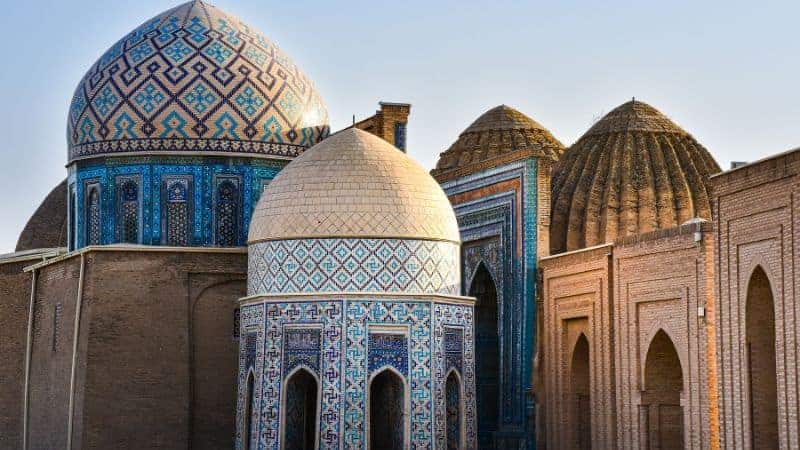
This article contains affiliate links (paid links) and Veggies Abroad is a member of Amazon Services LLC Associated Program. At no cost to you, I may earn a small commission if you make a purchase — this helps keep Veggies Abroad churning out free content! For an explanation of our advertising partnerships, please review our privacy policy.
What’s Uzbekistan Like?
Uzbekistan used to be a very mysterious country to foreigners — acquiring a visa was difficult, and very little was known about the country to the English-speaking world. After the death of the former president, Islam Karimov, in 2016, the country slowly began to open up to tourists.
Visitors to Uzbekistan typically explore the historical cities of Samarkand, Bukhara, and perhaps Khiva. These cities, each more than 2,000 years old, have endured numerous conquests by historical groups and figures such as the Arabs, Alexander the Great, the Turkic Khaganate, Genghis Khan, Tamerlane, and the Soviets, to name a few.
Tashkent, the capital of Uzbekistan, may not boast as many historical monuments as other cities, but it serves as the vibrant economic center of the country and is well worth a visit. As the most modern city in the country, it’s also the easiest place to find plant-based food. When deciding where to stay in Tashkent, staying close to Amir Temur Square or Navoi Opera will give you easy access to parks, gardens, and museums.
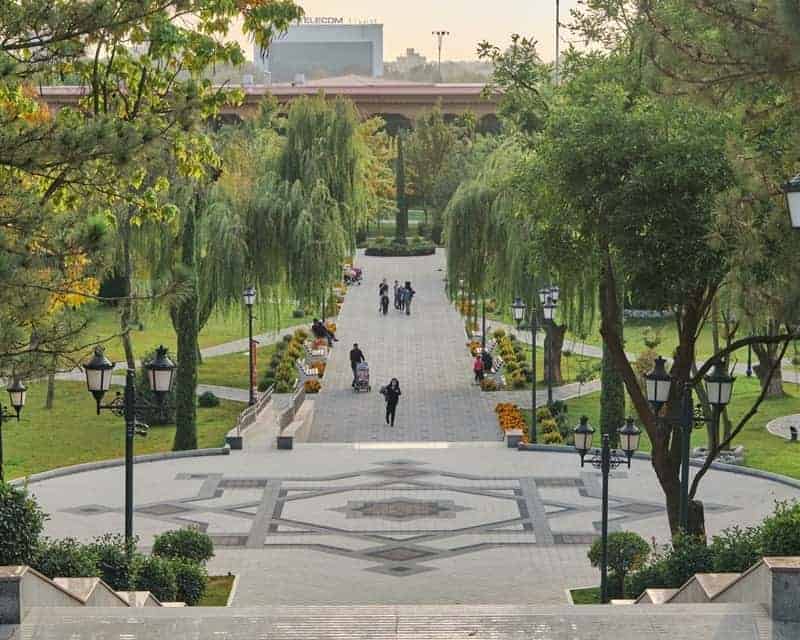
Despite losing much of its architecture over the centuries, the country is still home to dozens of mosques, mausoleums, and madrassas (Islamic schools). Some of the world’s most stunning Islamic architectural wonders can be found in Uzbekistan, including the Registan in Samarkand, the Kalon Minaret in Bukhara, and Itchan Kala, the inner fortress of Khiva.

There are many misconceptions about Uzbekistan, such as the traditions, language, safety, and currency. To briefly reassure those considering visiting, it is a safe and friendly country, and although it may require more planning than a trip to Thailand or France, it is well worth the visit.
This guide to Uzbekistan travel may help potential tourists to learn more about visiting this unique country.
Veganism in Uzbekistan
While Uzbek people take immense pride in their traditional dishes, vegans may face challenges when navigating the cuisine due to its heavy reliance on meat and animal fats. The national dish of Uzbekistan is plov, a rice dish typically cooked with vegetables and either lamb or beef. While traveling in Uzbekistan as a vegetarian is possible, being vegan in the country presents additional difficulties. Nevertheless, with some preparation, it’s entirely possible to navigate as a vegan.
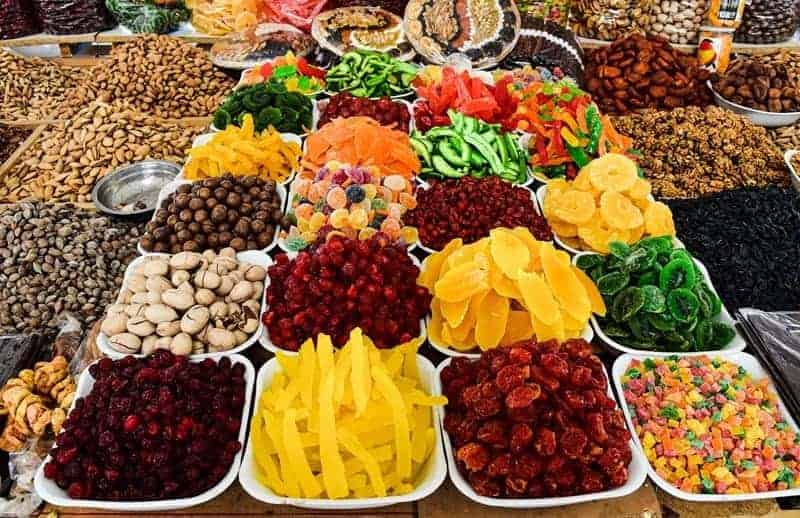
To offer the best possible answers for vegans in Uzbekistan, I talked with Akmal, a proud vegan and a native of Uzbekistan who conducts vegan food tours in Tashkent. A psychologist by profession, Akmal came back from working and studying in Europe in the summer of 2023 and spotted the opportunity to create a vegan food tour company to help vegans and vegetarians navigate the cuisine of his country. He has been a vegetarian for most of his life and adopted a vegan lifestyle three years ago, so he is well-versed in the plant-based scene.
Akmal is a very charming and articulate guy, and I highly recommend his food tour if you manage to visit Tashkent!
Uzbekistan Vegan Q & A with Local Vegan Food Expert
Ryan: Is veganism understood in Uzbekistan?
Akmal: The concept of veganism is not at all understood in Uzbekistan. People don’t know what it is. They don’t know what it is for. Some people will even be afraid of you and think you are part of a cult. “Is it your religion?” people often ask me.
Even if you tell them you don’t eat any animal products, they still might think you eat cheese or eggs. People always ask me, “What do you eat then?“
Uzbek people often believe that a vegan diet is not healthy, particularly for men, as they think that meat is necessary for health and strength.
Ryan: What should vegan travelers be aware of before they go?
Akmal: You should always double-check what’s in your food and make sure you clearly explain what you don’t want. Sometimes, the food may be vegan but is served with some kind of dairy sauce on top. Some places may add animal fat to the food or cook it with butter.
If you’re a foreigner, you can learn phrases like “go’shtsiz,” which means without meat, or “yog’siz,” which means without fat. However, I can see how it might be challenging for foreigners to explain what they want in the Uzbek language. Even if you can explain exactly what you want, you might still end up with something containing animal products.
Ryan: What do you do if you’re served non-vegan food?
Akmal and I had an interesting ethical discussion about what to do in case you are served something containing animal products. Attitudes vary among individuals not only regarding the morality of consuming animal products but also in terms of wasting food after it has been prepared. We contemplated how to strike a balance between these two aspects.
Akmal: If it’s already cooked for you and you refuse to eat it, people will ask, what will happen to this meal?
He says that while he certainly wouldn’t be able to eat meat himself, it is a shame to waste food. He advises that vegetarian and vegan travelers in Uzbekistan be prepared for such situations and plan how to respond ahead of time.
If you’re traveling with a non-vegan friend, this problem becomes much easier!
Ryan: Are Vegan Products Like Cheese, Alternative Meat, and Nondairy Milk Available in Restaurants and Stores?
Akmal: In some modern coffee shops, you can order plant-based milk, but it’s still rare and can be expensive. There are no meat substitutes in the restaurants or the supermarkets. You will not find it here. We have many Koreans living here, however, so there’s a lot of tofu.
Ryan: From my own experience of living in Tashkent, I can add that coconut and soy milk can be found in some of the more expensive cafes and certain large, fancy hotels, but they are not widespread. I have seen vegan cheese in one supermarket on upmarket Taras Shevchenko Street but have never seen any kind of plant-based meat substitute in restaurants or supermarkets.
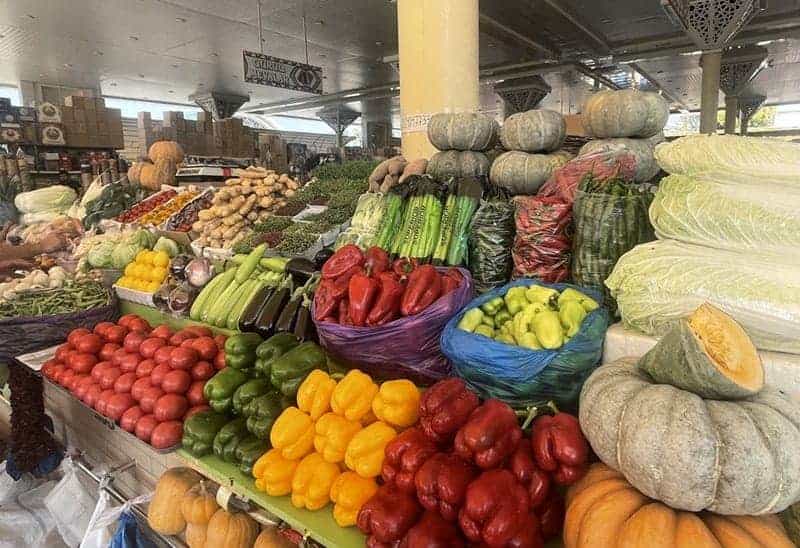
Ryan: Are there traditional Uzbek dishes that are vegan?
Akmal: There aren’t many traditional dishes, but spinach, pumpkin, or seasonal mountain herb somsa (Uzbek samosas) are all vegan options. We also have hanum, which is a potato pastry served in rich tomato sauce. The best one is in Tashkent’s Chorsu Bazaar. There are also vegan-friendly foods of Uighur origin in Uzbekistan, such as pumpkin manti (dumplings).
These days, we have vegetable and mushroom shashlik (grilled skewers), but they’re not traditional. They save me whenever we eat shashlik, and there’s nothing else to eat.
Ryan: If there aren’t a ton of traditional options, are other vegan-friendly cuisines available?
Akmal: Asian restaurants help a lot. Chinese and Korean restaurants have tofu salads and stir-fried dishes. Middle Eastern food such as hummus and falafel is good, too, but it’s not so common here. We have one Lebanese restaurant and a couple of Israeli places, but that’s about it. There are a lot of Russian salads, too, but they usually contain meat or mayo.
Vegan Sidenote: Akmal’s tour includes a stop-off at Alay Bazaar, a bazaar mainly selling food produce. He takes tourists to buy non, which is traditional Uzbek bread, and then to a stall selling Korean-style salads to use as a filling. Despite living just a few minutes away, it’s one of the tastiest meals I didn’t even know was available here!

Ryan: Does Uzbekistan have vegan or vegetarian restaurants and cafes?
Akmal: There are no exclusively vegan restaurants in Uzbekistan, but there are two vegetarian cafes in Tashkent. One is Eco Cafe, and the other is Artha, a yoga studio with a vegetarian cafe. Both of the cafes have regular events. Eco Cafe even serves vegan plov a couple of times a week.
Eco Cafe, located in the basement of Art Eco Hotel, is much more than a restaurant. It offers community events such as musical performances, an English-speaking club, and yoga.
Although restaurants exclusively dedicated to vegan and vegetarian food are rare, several other restaurants in Uzbekistan offer vegan options.
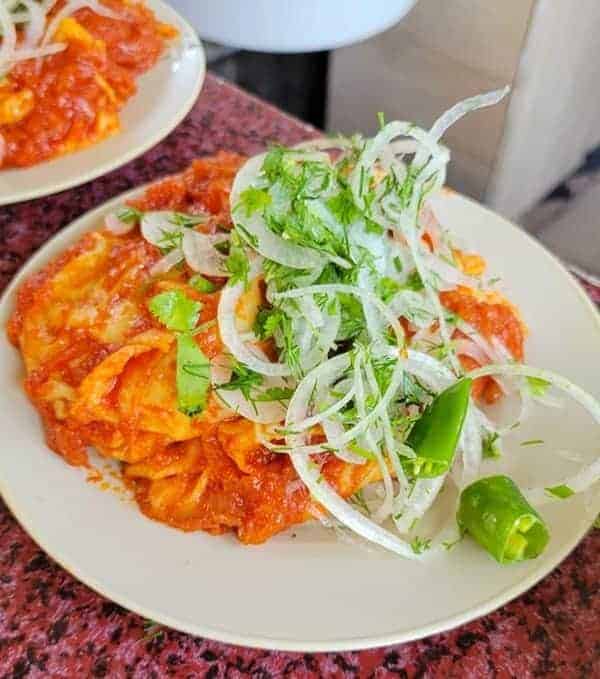
In Tashkent, a traditional Uzbek restaurant, Afsona, serves fruit plov, and the Hyatt Hotel’s Khiva Restaurant has a vegetable plov. In Bukhara, Art Restaurant has vegetable lagman (a Uighur-style noodle dish), vegetable skewers, and pumpkin dumplings.
In Khiva, you can try Terrassa Cafe and Restaurant, which has a beautiful terrace view of UNESCO heritage site Itchan Kala, while trying their grilled veggies or spinach samosas.
Each main city also has at least one Indian restaurant with multiple vegan options. The Indian Kitchen in Samarkand has plenty of plant-based meals, as do Raaj Kapur and The Host Restaurants in Tashkent.
Ryan: Are there issues with unethical animal tourism or cruelty that travelers should be aware of before they go?
Akmal: We still have cock fighting and dog fighting. Both of them are illegal but still popular and occur even in and around Tashkent. They used to have dog fights even in the Yangiabad flea market, but I don’t know if they’re there anymore.
We also have horseback games, which are quite common outside the cities. They have leagues and competitions. The games originated in Kazakhstan, but they’re popular here too.
Kupkari is an equestrian competition in Uzbekistan where male riders compete to capture a goat or sheep carcass. The goal is to reach the finish line while protecting the animal from other participants. As a tradition that has been around for centuries, it’s unlikely that this practice will change soon.

So, Should You Go?
Vegans don’t have the easiest task when visiting Uzbekistan, but there are many tasty veggie treats if you know where to find them. Akmal is certainly doing his bit to make Uzbekistan more accessible to plant-based foodies while injecting some humor into the challenge.
From the traditional snacks of pumpkin dumplings and spinach samosas to the modern addition of fruit plov and vegetable skewers, there are just enough vegan options to satisfy your cravings for cruelty-free cuisine in this otherwise meat-oriented society. For the few who do make it to Uzbekistan, the country’s beautiful architecture and hospitality to foreigners make the trip more than worthwhile.
Uzbekistan Wrap Up
Looking for more vegan adventure inspiration? Look no further than these guides and articles!

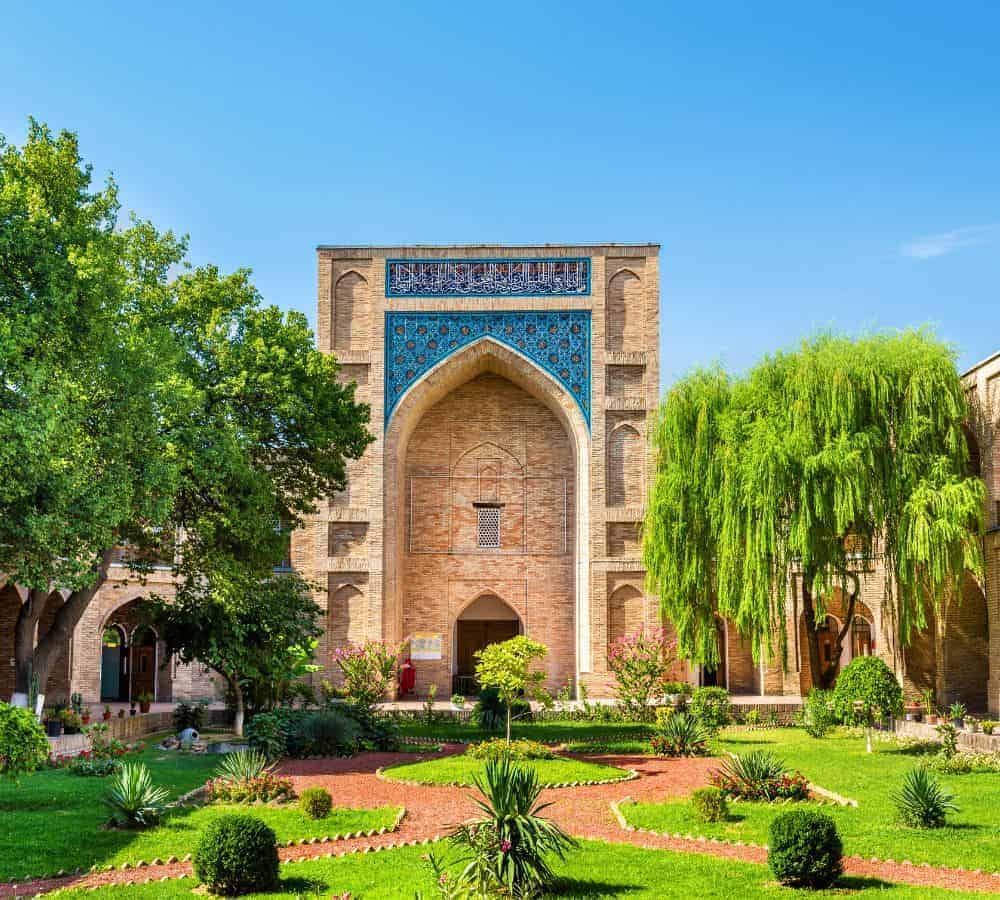

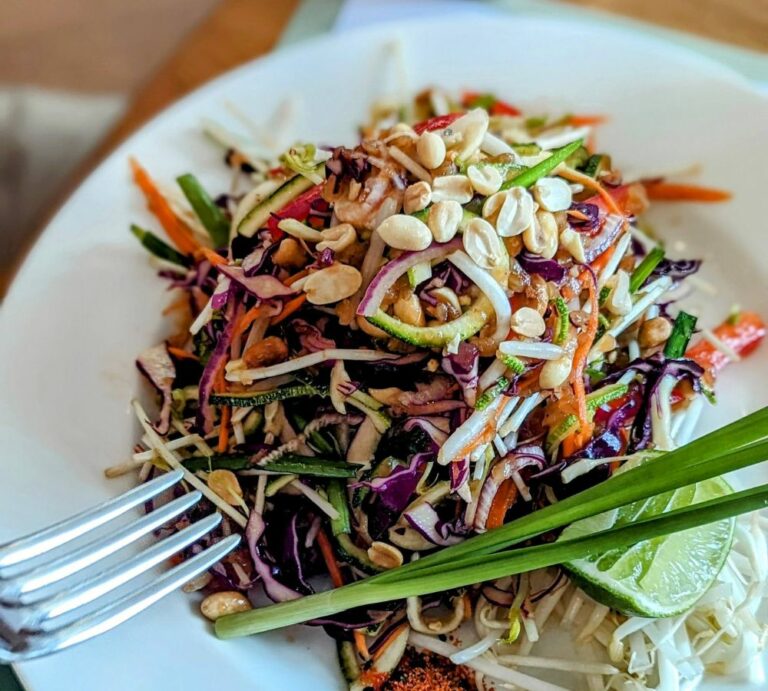
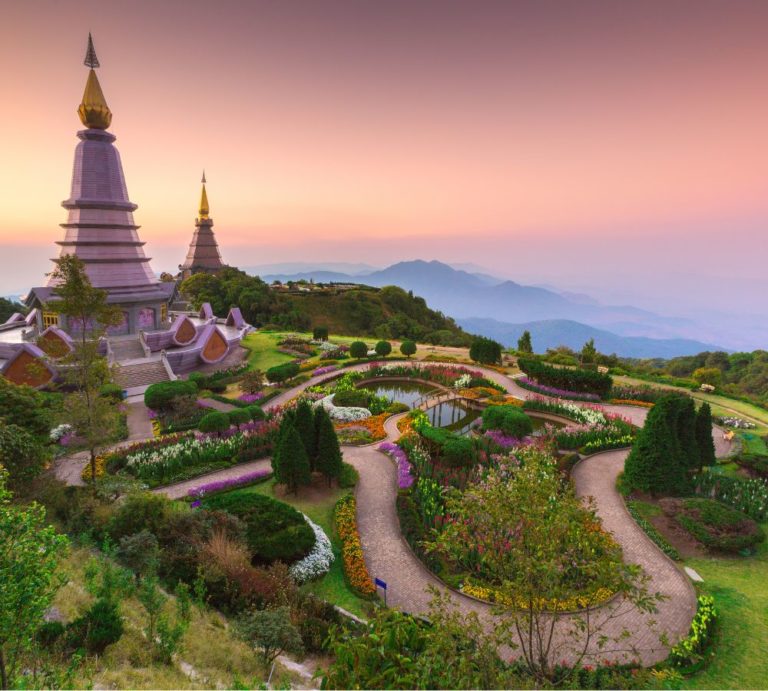


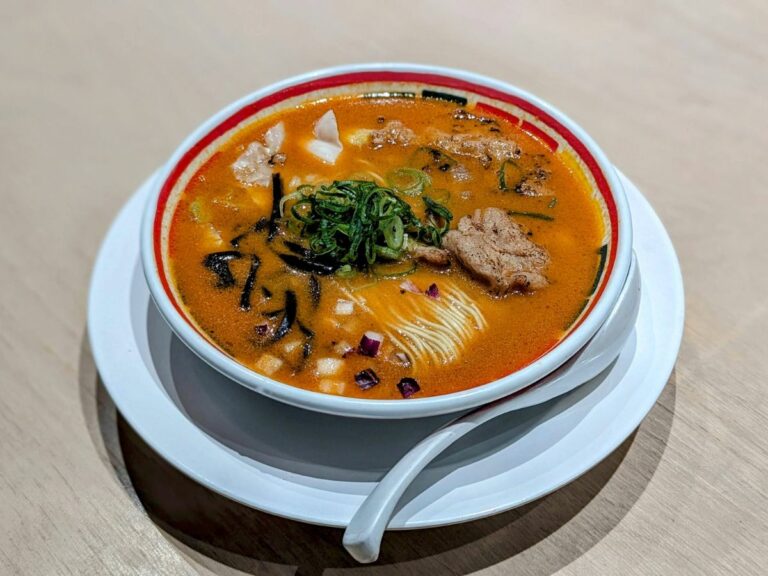
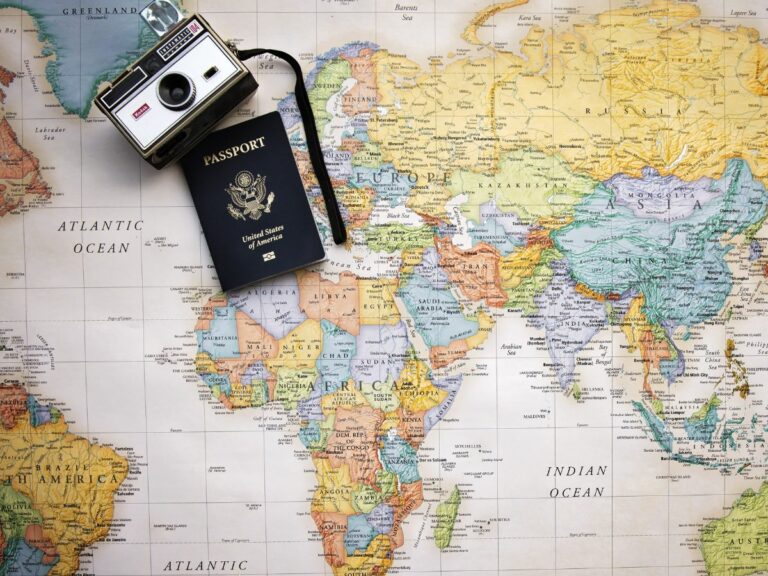
Thank you for this info. We want to visit Uzbekistan but are concerned about the availability of plant based items in supermarkets even if we self cater!
I’m so glad it was helpful. If you go, come back and share how your experience was!
Hi! I live in Tashkent. Both my husband and I have a dairy allergy. If you could let me know of any specific places where you have found vegan cheese, I would appreciate that so much!
Thanks!!
Vickie